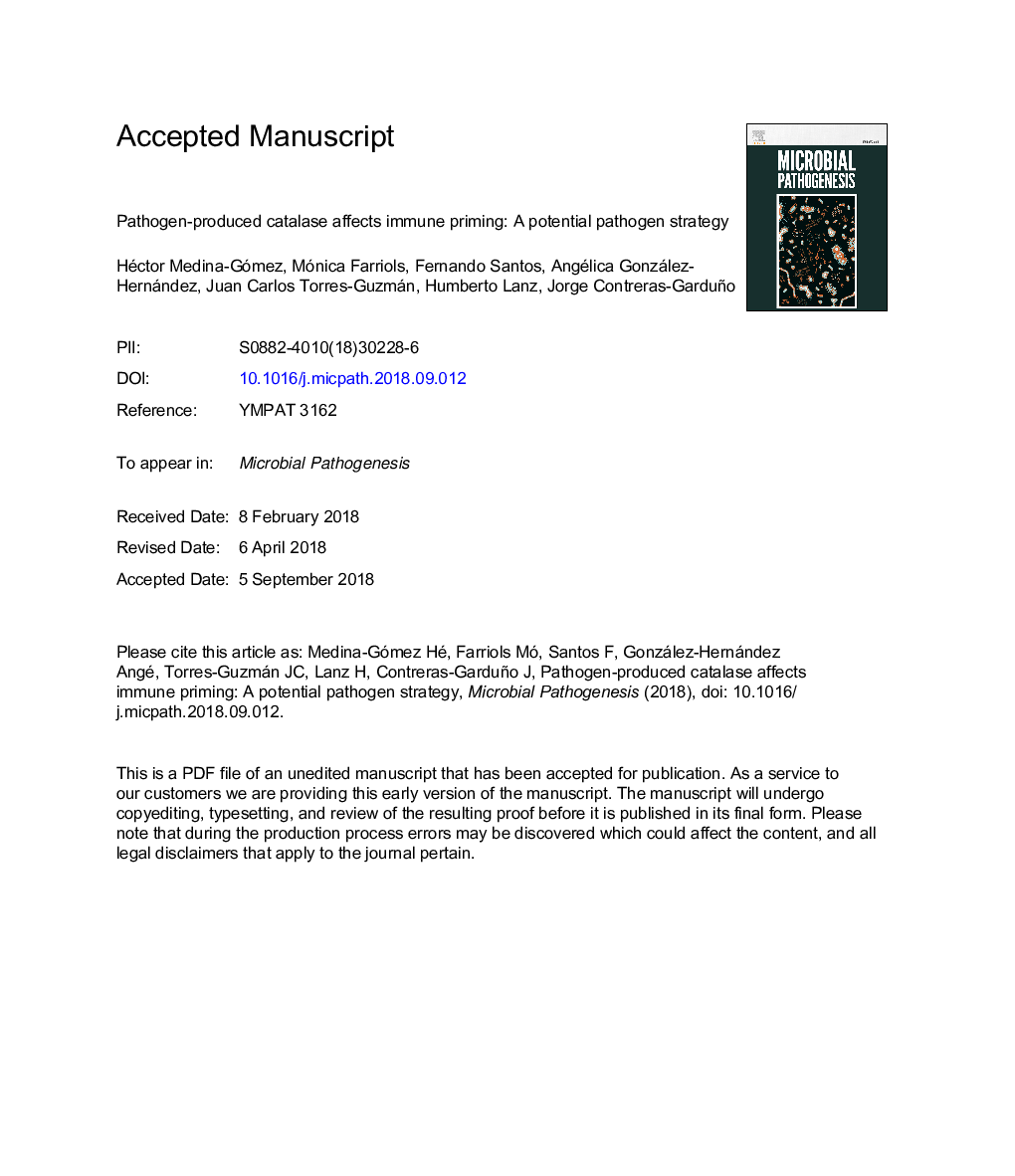| کد مقاله | کد نشریه | سال انتشار | مقاله انگلیسی | نسخه تمام متن |
|---|---|---|---|---|
| 10148703 | 1646650 | 2018 | 18 صفحه PDF | دانلود رایگان |
عنوان انگلیسی مقاله ISI
Pathogen-produced catalase affects immune priming: A potential pathogen strategy
ترجمه فارسی عنوان
کاتالاز تولید شده با پاتوژن بر پایه ایمنی بدن تاثیر می گذارد: یک استراتژی پاتوژن بالقوه
دانلود مقاله + سفارش ترجمه
دانلود مقاله ISI انگلیسی
رایگان برای ایرانیان
کلمات کلیدی
موضوعات مرتبط
علوم زیستی و بیوفناوری
ایمنی شناسی و میکروب شناسی
میکروب شناسی
چکیده انگلیسی
Immune priming in invertebrates occurs when the first contact with a pathogen/parasite enhances resistance after a second encounter with the same strain or species. Although the mechanisms are not well understood, there is evidence that priming the immune response of some hosts leads to greater pro-oxidant production. Parasites, in turn, might counteract the host attack with antioxidants. Virulent pathogen strains may therefore mask invertebrate immune priming. For example, different parasite species overexpress catalase as a virulence factor to resist host pro-oxidants, possibly impairing the immune priming response. The aim of this study was firstly to evaluate the specificity of immune priming in Tenebrio molitor when facing homologous and heterologous challenges. Secondly, homologous challenges were carried out with two Metarhizium anisopliae strains (Ma10 and CAT). The more virulent strain (CAT) overexpresses catalase, an antioxidant that perhaps impairs a host immune response mediated by reactive oxygen species (ROS). Indeed, T. molitor larvae exhibited better immune priming (survival) in response to the Ma10 than CAT homologous challenge. Moreover, the administration of paraquat, an ROS-promoting agent, favoured survival of the host upon exposure to each fungal strain. We propose that some pathogens likely overcome pro-oxidant-mediated immune priming defences by producing antioxidants such as catalase.
ناشر
Database: Elsevier - ScienceDirect (ساینس دایرکت)
Journal: Microbial Pathogenesis - Volume 125, December 2018, Pages 93-95
Journal: Microbial Pathogenesis - Volume 125, December 2018, Pages 93-95
نویسندگان
Héctor Medina-Gómez, Mónica Farriols, Fernando Santos, Angélica González-Hernández, Juan Carlos Torres-Guzmán, Humberto Lanz, Jorge Contreras-Garduño,
